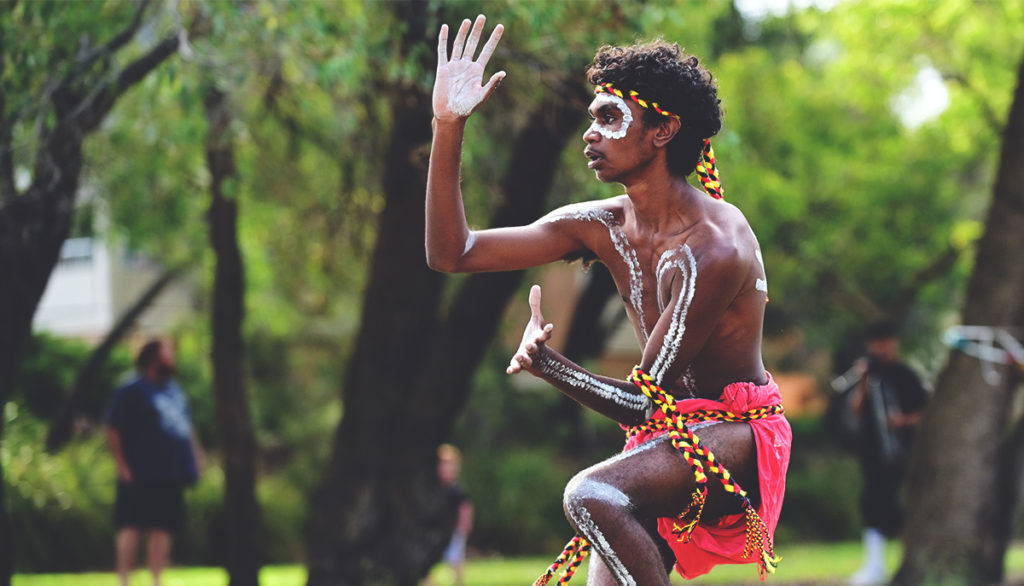Ah, public holidays. In other words, the perfect excuse to travel over a long weekend and ignore any mounting assignments. Public holidays really are the best way to get extra time to explore your adopted city or go on a short getaway with friends to see more of Australia.
Several major retailers and supermarkets have amended trading hours on some public holidays, while smaller shops and businesses will close completely. So, it pays to be prepared to ensure you don’t get caught out on the day.
If you’re keen to start planning your next break or just need a little background on the various public holidays around Australia, we’ve put together a handy guide to public holidays in 2023.
JANUARY
New Year’s Day – 1 January
National
Following a New Year’s Eve packed with frivolity, fireworks and champagne (or Netflix and falling asleep by 10.30pm – we won’t judge!), use the first day of the Gregorian new year to rest and start planning those resolutions. For those who don’t observe 1 January as the beginning of the New Year, don’t worry; events are held across Australia to celebrate other international calendars throughout 2022, such as Lunar New Year and Islamic New Year.
Australia Day – 26 January
National
Essentially, 26 January marks the anniversary of the 1788 arrival of the First Fleet ships at Port Jackson and the rising of the flag of Great Britain at Sydney Cove. Due to the controversial nature of the date, many workplaces now give employees the option to work on 26 January and take an alternative day off. For more information on the wider Australia Day debate, click here.
FEBRUARY
Royal Hobart Regatta – 11 February
Tasmania
Tasmania’s oldest sporting event is the Royal Hobart Regatta, which is marked by a public holiday observed in most of Tasmania. Beginning in 1838, the Regatta celebrates the 17th-century European discovery of the island.
MARCH
Labour Day – 6 March
Western Australia
In 1879, the first Labour Day public holiday was introduced in Victoria to improve conditions for workers. The date (and name) of Labour Day changes from state to state, but it is simply a day to commemorate the achievements of the Australian labour movements.
Adelaide Cup Day (March Public Holiday) – 13 March
South Australia
The Adelaide Cup is a thoroughbred horse race run across 3,200 metres that began in 1864. It became a public holiday in 1973 and is held on the second Monday in March.
Canberra Day – 13 March
Australian Capital Territory
Also held annually on the second Monday in March, Canberra Day celebrates the official naming of Canberra in 1913 by Lady Denman.
Eight Hours Day – 13 March
Tasmania
Also known as ‘Labour Day’, see Labour Day – 6 March for more information.
Labour Day – 13 March
Victoria
See Labour Day – 6 March for more information.
APRIL
Good Friday – 7 April
National
The days of Easter vary each year depending on the Western Christian Calendar, but in 2023, the holiday period starts on 7 April.
Good Friday is a Christian holiday that commemorates the crucifixion of Jesus and his death at Calvary. This public holiday (and the rest of the Easter weekend) is widely instituted across most of the world, so you may have observed it in your home country.
In Australia, the holiday is usually marked by chocolate Easter eggs (or Easter bilbies), egg hunts and hot cross buns.
Saturday before Easter Sunday/Easter Saturday – 8 April
National except Tasmania and Western Australia
Traditionally known as ‘Holy Saturday’, this is the last day of the Holy Week and the day on which Christians prepare for Easter Sunday.
Easter Sunday – 9 April
Australian Capital Territory, New South Wales, Queensland, Victoria, Northern Territory
The Easter Sunday holiday is in celebration of the resurrection of Jesus. Many Orthodox churches (for example, the Greek, Serbian and Russian Orthodox churches) base their Easter date on the Julian calendar rather than the Gregorian, which means Orthodox Easter is on a different day. In 2019, ‘Pascha’ (Orthodox Easter) will be on 28 April.
Easter Monday – 10 April
National
Primarily observed by Eastern Orthodox and Roman Catholic traditions, Easter Monday marks the beginning of Easter Week/Bright Week.
ANZAC Day – 25 April
National
The ANZAC Day tradition began as a remembrance for the Australian and New Zealand Army Corps (ANZAC) soldiers who landed at Gallipoli, Turkey, on 25 April 1915 during World War I. Since then, the day has expanded to commemorate all citizens who fell fighting or served Australia in wars.
MAY
Labour Day – 1 May
Queensland
See Labour Day – 6 March for more information.
May Day – 1 May
Northern Territory
See Labour Day – 6 March for more information.
Reconciliation Day – 29 May
Australian Capital Territory
In the ACT, Reconciliation Day marks the start of National Reconciliation Week – a time for all Australians to learn about their shared histories and cultures, celebrate achievements, and contribute to achieving reconciliation in Australia. There are a number of different ways you can get involved with Reconciliation Week this year – see here.
JUNE
Western Australia Day – 5 June
Western Australia
Formerly known as Foundation Day, Western Australia Day celebrates the founding of the British Swan River Colony in 1829. It takes place on the first Monday in June.
King’s Birthday – 12 June
National except QLD and WA
2023 will be the first year of observing King Charles II’s birthday. Australia celebrates the King’s Birthday as it is a constitutional monarchy with the English monarch as the head of state.
JULY
There are no public holidays in July (besides some regional ones in the Northern Territory), but this is usually when mid-semester break falls for universities across Australia. This is also the time when many international students head home after completing their studies, so try to make the most of what’s left on your Australian bucket list!
AUGUST
Picnic Day – 7 August
Northern Territory
Taking place on the first Monday of August, Picnic Day events date back to the 1800s. The day was set as an annual public holiday for railway workers working on the North Australia Railway to go to Adelaide River and enjoy a picnic, but is now observed by everyone in the Northern Territory.
SEPTEMBER
AFL Grand Final Friday – 29 September
Victoria
The Australian Rules Football season runs from March to September and ends with the Grand Final between the two top-tier teams. The Friday before the Grand Final is observed as a public holiday in Victoria.
King’s Birthday – 25 September
Western Australia
Because Western Australia celebrates Western Australia Day on the first Monday in June, the Governor of Western Australia proclaims what day the state will observe the King’s Birthday.
OCTOBER
Labour Day – 2 October
Australian Capital Territory, New South Wales, South Australia
See Labour Day – 6 March for more information.
King’s Birthday – 2 October
Queensland
Queensland celebrates the King’s Birthday in October so that public holidays are more spread out.
NOVEMBER
Melbourne Cup – 7 November
Victoria
For metropolitan Melbourne and some parts of regional Victoria, Melbourne Cup day is a public holiday. The Melbourne Cup was first held in 1861 and is now Australia’s most well-known annual horse race. However, the event is extremely controversial for a number of reasons, most significant of which being the safety of the horses.
DECEMBER
Christmas Eve – 24 December
Northern Territory, Queensland, South Australia
The Northern Territory observes 7pm to midnight on Christmas Eve as a public holiday for employment purposes.
Christmas Day – 25 December
National
Although traditionally a Christian religious festival as it commemorates the birth of Jesus, Christmas Day and its associated holiday is now largely embraced as a time to spend with family and friends, exchange gifts and, particularly in Australia, spend a day by the beach.
Boxing Day (also known as ‘Proclamation Day’ in South Australia) – 26 December
National
A secular holiday celebrated the day after 25 December. In Australia, Boxing Day is marked by Boxing Day sales nationwide (similar to Black Friday in the USA), where stores offer huge discounts. In South Australia, the holiday is known as ‘Proclamation Day’, marking the establishment of government in South Australia as a British province.
New Year’s Eve – 31 December
Northern Territory, South Australia
Similar to Christmas Eve, 7pm to midnight on New Year’s Eve is a public holiday for employment purposes.
A quick note: often when a public holiday falls on a Saturday or Sunday, the following Monday is deemed a public holiday.





